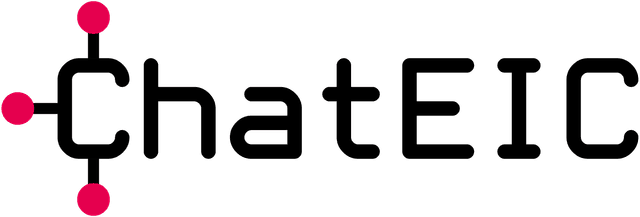
Why it's Important to Have a Diverse Grant Strategy (EIC Accelerator, SME Instrument) - Part 2
This article is a continuation of Part 1 and describes a perspective as to how startups and Small- and Medium-Sized Enterprises (SME) should view grant applications. Since especially the EIC Accelerator blended financing (formerly SME Instrument Phase 2, grant and equity financing) is highly competitive and templates can be difficult to work with, care should be taken in pursuing a diverse financing strategy (read: EIC Accelerator Introduction). Especially when working with professional writers or consultancies, it is useful for applicants to have an understanding of the place grants can have for a business.
Post-Project Fund Raising
Irrespective of a single grant being secured or not, any startup should be in contact with some private investors such as Venture Capitalist's (VC) since they will eventually need to raise post-project financing rounds during their scaling process. The EIC Accelerator, in particular, is even preferring companies that can proactively onboard VC's on their own which is why it can be a requirement (read: Insight into EIC Equity Financing).
The reimbursement rate is also a factor to consider since often a grant issuer is only funding certain percentages of the presented costs and seeks justifications detailing how the remaining financing will be allocated (i.e. a 70% rate for the EIC Accelerator). Such a scenario makes co-financing a must for pre-revenue startups and should underline how the reliance on a single grant is not the best strategy.
Different Project Focus
Many companies start with one idea and end up pivoting multiple times until the market, timing and innovation match up perfectly. Especially events such as the recent COVID-19 pandemic have led a variety of companies and research institutes to switch their focus because they either saw a significant opportunity on the horizon or had to abandon a project out of necessity.
Grants can be a low-stakes tool to test out a new idea or concept and can be used to pivot into a new market or technology that would not be feasible otherwise. A company can identify its core value proposition and propose a variety of application cases to different funding providers whereas the project that gains traction first will win.
Private over Public Financing
While grants from public sources are lucrative, they tend to be significantly smaller than private funding especially when it comes to innovative for-profit businesses. Grants are an interesting opportunity but should not be an exclusive strategy since it can have additional benefits to onboard a strategic investor or be part of accelerator programs that bring a significant amount of experience to the table.
Like most grants, the EIC Accelerator is lacking in that regard and it should be considered that financing itself is not the only benefit of forming investor relationships since simple decisions can make or break a startups success. Government bodies who issue grants can provide valuable coaching support but, due to their strong reliance on having politicians rather than entrepreneurs in leadership positions, they will always be inferior to private financiers who have a long-term interest in the founder team.
Changing EU Policies
Grants can be fickle especially when it comes to policy-driven opportunities that are recent or en vogue. A perfect example is the Green Deal in the European Union (EU) which has been launched in 2019 and has received a tremendous financing budget in a short time span that even disrupted existing grants (read: Green Deal EIC Accelerator Call). In the same vein, many funding arms in the EU have started to switch towards coronavirus-friendly projects during 2020 due to the emerging pandemic (read: Corona-Virus Call).
Such erratic changes can be a double-edged sword since they can be either beneficial or detrimental to applicants depending on the respective funding increasing or running dry overnight. Private investors are usually less affected by such changes since they are not subject to policies and are not required to operate in the publics best interest albeit regulations can still affect them.
Competing Projects
Lastly, the European Commission (EC) aims to fund innovative projects but, due to the tracking on the Community Research and Development Information Service (CORDIS) database, it is also aware of competing projects that receive funding which can jeopardize a companies success chances in case a competitor has received a grant before. This can be entirely independent of the validity of the business model and can be purely based on the subjective reason that the EU aims to only fund an innovation once. Of course, there are exceptions to this rule but it is wise to identify past grant financing projects before applying with a new project.
These tips are not only useful for European startups, professional writers, consultants and Small and Medium-Sized Enterprises (SME) but are generally recommended when writing a business plan or investor documents.
Deadlines: Post-Horizon 2020, the EIC Accelerator accepts Step 1 submissions now while the deadlines for the full applications (Step 2) under Horizon Europe are listed below. The Step 1 applications must be submitted weeks in advance of Step 2. The next EIC Accelerator cut-off for Step 2 (full proposal) can be found here. After Brexit, UK companies can still apply to the EIC Accelerator under Horizon Europe albeit with non-dilutive grant applications only - thereby excluding equity-financing. Switzerland has resumed its participation in Horizon Europe and is now eligible for the EIC Accelerator.
EIC Accelerator Step 1 Deadline 2025
Contact: You can reach out to us via this contact form to work with a professional consultant.
AI Grant Writer: ChatEIC is a fully automated EIC Accelerator grant proposal writer: Get it here.
EIC Accelerator: EIC Accelerator delivers flexible funding options including blended finance (€2.5M grant + €0.5M-€10M equity), grant-only (up to €2.5M), or equity-only arrangements for scale-up and market deployment of breakthrough innovations. The initiative targets SMEs, start-ups, and small mid-caps with up to 499 employees. Technology areas include Biotech, Engineering, Artificial Intelligence, Energy, Quantum, Aerospace, Advanced Materials, and Semiconductors. Get Started
EIC Pathfinder: EIC Pathfinder delivers up to €3 million for Open calls and up to €4 million for Challenge-based calls to support early-stage research and development with proof-of-principle validation. The initiative requires research consortia with a minimum of 3 partners from 3 different countries, including universities, research organizations, and SMEs. Primary technology focus areas include Health/Medical, Quantum Technologies, AI, Environmental/Energy, and Advanced Materials. Get Started
EIC Transition: EIC Transition delivers up to €2.5 million in funding to overcome the 'valley of death' gap between laboratory research and market deployment, emphasizing technology maturation and validation. The initiative supports single legal entities or small consortia of 2-5 partners including SMEs, start-ups, spin-offs, and research organizations. Key technology domains include Health/Medical Technologies, Green/Environmental Innovation, Digital/Microelectronics, Quantum Technologies, and AI/Robotics. Get Started
EIC STEP Scale-Up: EIC STEP Scale-Up delivers significant equity investments of €10-30 million for established deep-tech companies prepared for hyper-growth and large-scale expansion. The initiative targets SMEs or small mid-caps with up to 499 employees who have obtained pre-commitment from qualified investors. Primary focus areas include Digital & Deep Tech (Semiconductors, AI, Quantum), Clean Technologies for Net-Zero objectives, and Biotechnologies. Get Started
EIC Pre-Accelerator: EIC Pre-Accelerator represents a pilot initiative delivering €300,000-€500,000 in funding for early-stage deep-tech development and preparation for the EIC Accelerator program. This program is exclusively accessible to single SMEs or small mid-caps from 'Widening countries' to foster regional innovation development. The initiative encompasses deep-tech innovations across physical, biological, and digital domains. Get Started
EIC Advanced Innovation Challenges: EIC Advanced Innovation Challenges represents a new pilot initiative delivering €300,000 (Stage 1) and up to €2.5 million (Stage 2) for breakthrough deep-tech innovations through ARPA-style staged funding mechanisms with integrated demand-side engagement. This initiative targets single entities or small consortia (2-3 partners) including SMEs, start-ups, and research organizations. Primary focus areas include Physical AI for autonomous robotics applications and New Approach Methodologies (NAMs) for animal-free biomedical testing, with TRL 4 entry requirements and demonstrated end-user commitment. Get Started
Eureka Network: The Eureka Network delivers various international collaborative R&D initiatives such as Network Projects, Clusters, Eurostars, Globalstars, and Innowwide, providing funding from €50K to €6.75M per project based on the specific initiative. This network emphasizes market-driven innovation and deep-tech advancement across multiple technology sectors including ICT/Digital, Industrial/Manufacturing, Bio/Medical Technologies, Energy/Environment, Quantum, AI, and Circular Economy. Eligible participants include SMEs, large enterprises, research organizations, universities, and startups, with Eurostars particularly focused on R&D-performing SMEs. Get Started
Eurostars: Eurostars represents a joint EU-Eureka initiative delivering €50K-€500K for international R&D collaboration specifically led by SMEs. The program adopts a bottom-up approach, accepting projects from all technology fields without predefined thematic restrictions. R&D-performing SMEs must lead the consortium and demonstrate significant R&D activities. Get Started
Innovation Partnership: Innovation Partnership enables collaborative innovation between public and private sectors with typical funding of €1-5 million per project. The initiative supports cross-sectoral strategic technologies through public-private partnerships and consortia. Projects concentrate on addressing societal challenges through collaborative innovation approaches. Get Started
Innovation Fund: The EU Innovation Fund delivers substantial funding of €7.5 million to €300 million for large-scale demonstration of innovative low-carbon technologies. The initiative targets clean energy, carbon capture, renewable energy, and energy storage technologies to accelerate the transition to a low-carbon economy. Eligible participants include large companies, consortia, and public entities capable of implementing large-scale demonstration projects. Get Started
Innovate UK: Innovate UK delivers various programs with funding ranging from £25K to £10M depending on the specific initiative, supporting business-led innovation, collaborative R&D, and knowledge transfer. The organization funds projects across all sectors with particular emphasis on emerging technologies and supports UK-based businesses, research organizations, and universities. Programs are designed to drive economic growth through innovation and technology commercialization. Get Started
Industrial Partnership: Industrial Partnership delivers €2-10 million in funding for industrial research and innovation partnerships focusing on manufacturing, industrial technologies, and digital transformation. The initiative supports industrial consortia and research organizations in developing collaborative solutions for industrial challenges. Projects aim to strengthen European industrial competitiveness through strategic partnerships. Get Started
LIFE Programme: The LIFE Programme delivers €1-10 million in funding for environmental protection, climate action, and nature conservation projects across the European Union. The initiative supports environmental technologies, climate adaptation strategies, and biodiversity conservation initiatives. Eligible participants include public authorities, private companies, NGOs, and research institutions working on environmental and climate challenges. Get Started
Neotec: Neotec represents a Spanish initiative delivering €250K-€1M in funding for technology-based business creation and development, supporting the growth of innovative Spanish SMEs and start-ups. The program covers all technology sectors and aims to strengthen Spain's technology ecosystem. Funding is specifically targeted at Spanish technology-based SMEs and start-ups to enhance their competitiveness and market presence. Get Started
Thematic Priorities: EU Thematic Priorities encompass various programs aligned with EU strategic priorities including green transition, digital transformation, health, and security initiatives. Funding amounts vary based on the specific program and call requirements, with projects designed to address key European challenges. Applicant eligibility varies by specific program and call, with different requirements for different thematic areas. Get Started
Any more questions? View the Frequently Asked Questions (FAQ) section.
Want to see all articles? They can be found here.
For Updates: Join this Newsletter!
